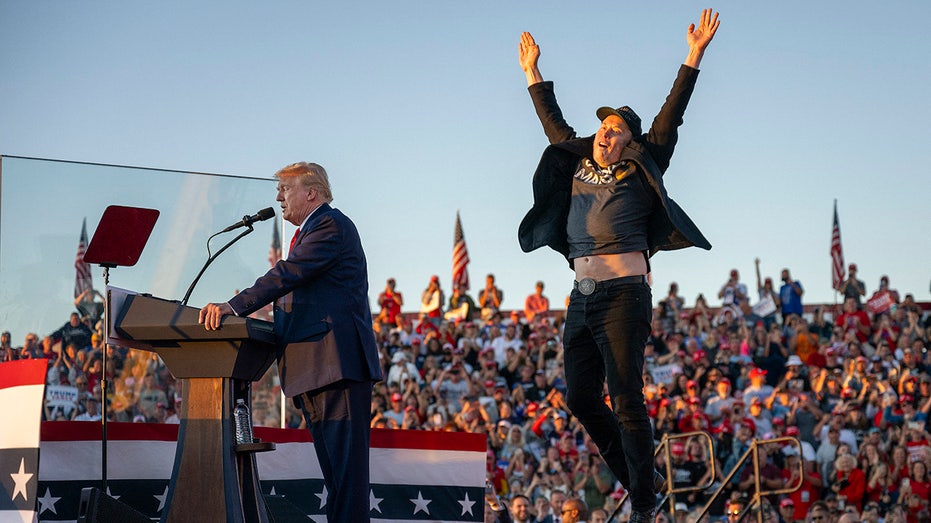Could Elon Musk's Support Have Been the Key to Donald Trump’s Potential 2024 Presidential Victory?
Former allies Donald Trump and Elon Musk clash over 2024 election credit, as Musk touts his battleground campaign efforts.

The public feud between President Donald Trump and billionaire entrepreneur Elon Musk has taken center stage in Washington, marking a dramatic unraveling of a partnership that once seemed critical to the White House’s inner workings. The two figures, who initially worked closely during the first months of Trump's second term, are now locked in a high-profile dispute over credit for the Republican victory in the hotly contested 2024 presidential election.
At the heart of their argument lies not just policy differences, but also a deepening battle over their legacies. Trump's irritation was clear Thursday as he publicly minimized the importance of Musk’s campaign involvement, declaring, “I think I would have won” even if the tech mogul had stayed on the sidelines. Meanwhile, Musk swiftly countered with an online rebuke, insisting his support had been vital—not only to Trump's own win, but also to the GOP's congressional victories. “Without me, Trump would have lost the election,” Musk wrote on his social media platform X, calling out what he described as Trump’s “ingratitude.”
Despite their collaboration on the Department of Government Efficiency (DOGE)—an agency born out of their combined vision—the falling out came shortly after Musk was dismissed from his advisory role. Tensions escalated further when Musk made sensational allegations against the president, fueling headlines and deepening the divide inside Republican ranks. Trump, meanwhile, lashed out at Musk's opposition to the administration’s cornerstone economic policy: the "biggest tax cuts in history."
Musk’s influence during the campaign, especially in Pennsylvania, is widely acknowledged by party operatives. As the top donor of the cycle, he funneled nearly $300 million into America PAC, directly supporting efforts that targeted key swing states. His presence on the campaign trail and his establishment of a Pittsburgh-based war room were credited by many strategists as energizing turnout among low-propensity Trump voters—a demographic considered crucial for the Republican sweep across all seven battleground states.
Local and national Republican leaders weighed in on the spat, with most agreeing that while Musk’s financial muscle and star power assisted the Trump campaign, the final victory still rested on Trump’s unique appeal. One strategist noted, “There’s only one constant and one person who is most responsible, by far, and that’s President Trump. That’s who people voted for.” However, others argued that Musk’s unprecedented field efforts and communication strategies played a decisive role in mobilizing support, making the pathway to victory “much easier” for the president.
As the rift between the two prominent Republicans continues to widen, questions remain about the long-term impact on both Trump’s governing coalition and the party’s strategic direction heading into future elections. For now, the nation watches as two of its most powerful figures vie publicly for recognition, each seeking to shape the narrative of one of the most consequential elections in recent memory.




